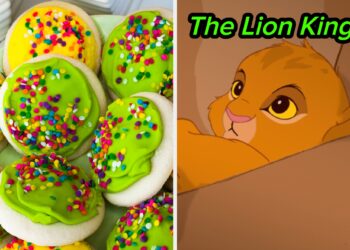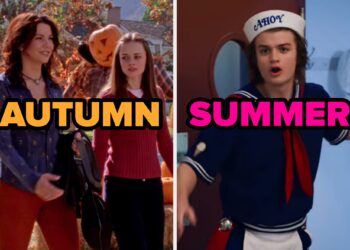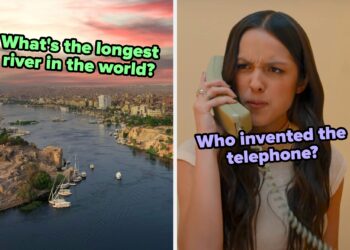‘There is a house. One enters it blind and comes out seeing. What is it?’
A church
A library
A hospital
A school
‘What goes on four legs in the morning, on two legs at noon, and on three legs in the evening?’
A human
A cane
A chair
A tree
‘Out of the eater, something to eat; out of the strong, something sweet.’
Flies on fruit
Maple syrup in a tree
Bees inside a lion’s carcass
Corn in a husk
‘When I am alive I do not speak. Anyone who wants to takes me captive cuts off my head. They bite my bare body. I do no harm to anyone unless they cut me first, then I soon make them cry.’
An onion
A fish
A chili pepper
A snake
‘Four hang, four sprang, two point the way, two to ward off dogs, one dangles after, always rather dirty. What am I?’
A cow
A carriage
Wheels
A pig
‘Everyone who goes on the road eventually stops for a rest. But my road never ends, and I never get to stop. I endure a perpetual journey which the years cannot stop, Nations and kings cannot prevent my journey.’
Time
A river
The Moon
The Sun
‘A house full of spines and a guest small of body with an unharmed back, pierced by sharp spears. This unarmed dweller travels with armored crops.’
A cactus
A porcupine
A hedgehog
A rose
‘An ox ploughs a field all day. How many footprints does he leave in the last furrow?’
None
Four
Eight
No one knows
‘I have little courage but great resources; I do not seek wealth, but I give it to others. Wandering around, I eat humble foods, and I am often forced to give up my wealth. People keep my body close to them. I have no money, but even kings value me.’
A cow
A purse
A tree
A sheep
‘I look at you whenever you look at me. You see, but I see not, no sight have I. I speak but have no voice; your voice is heard. My lips can only open uselessly. What am I?’
A mask
An echo
Your reflection
Your shadow
“What we caught, we threw away; what we didn’t catch, we kept. What did we keep?”
Lice
Fish
Bedbugs
Anchors
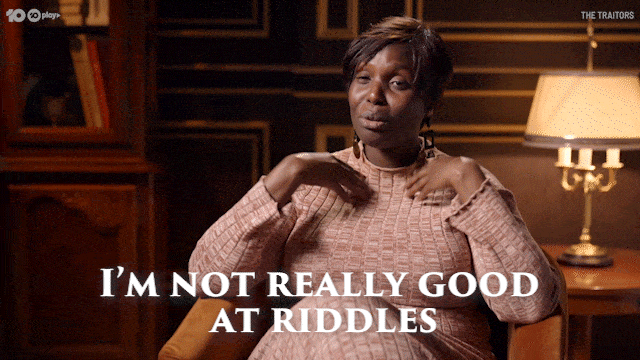
Your noggin’s a little too modern…
Well, your mind is a touch too modern to solve these ancient riddles! Or maybe you just don’t care for riddles. Don’t feel bad about your low score! Riddles are meant to be difficult. And hey, I’d like to see Plato try to navigate TikTok’s “For You” page.
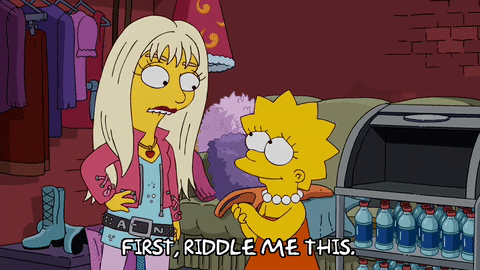
Riddles are no match for you!
Wow! You know your way around a riddle. From Ancient Greece to Norse mythology, your ability to solve riddles is almost unbeatable. Sure, you missed a few questions, but all in all, I would still want you on my trivia team!
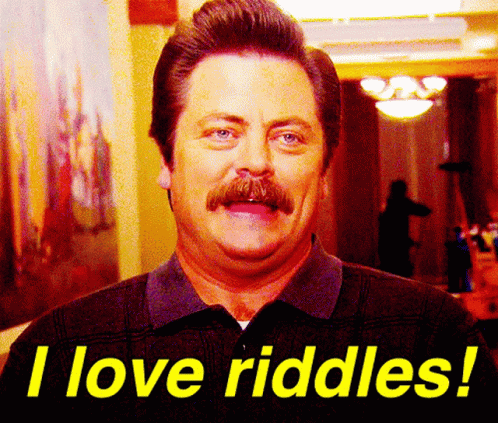
Time-traveler status!
Either you’re a time traveler or a MENSA member because there is NO way anyone else could solve this many ancient riddles. From human life cycles to honeybees, the Sphinx would be no match for you! Since you’re such a smarty-pants, here’s a bonus riddle: What has an eye but cannot see? Tell us the answer in the comments!

